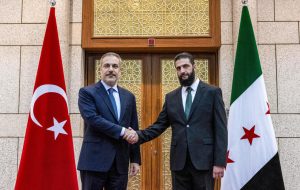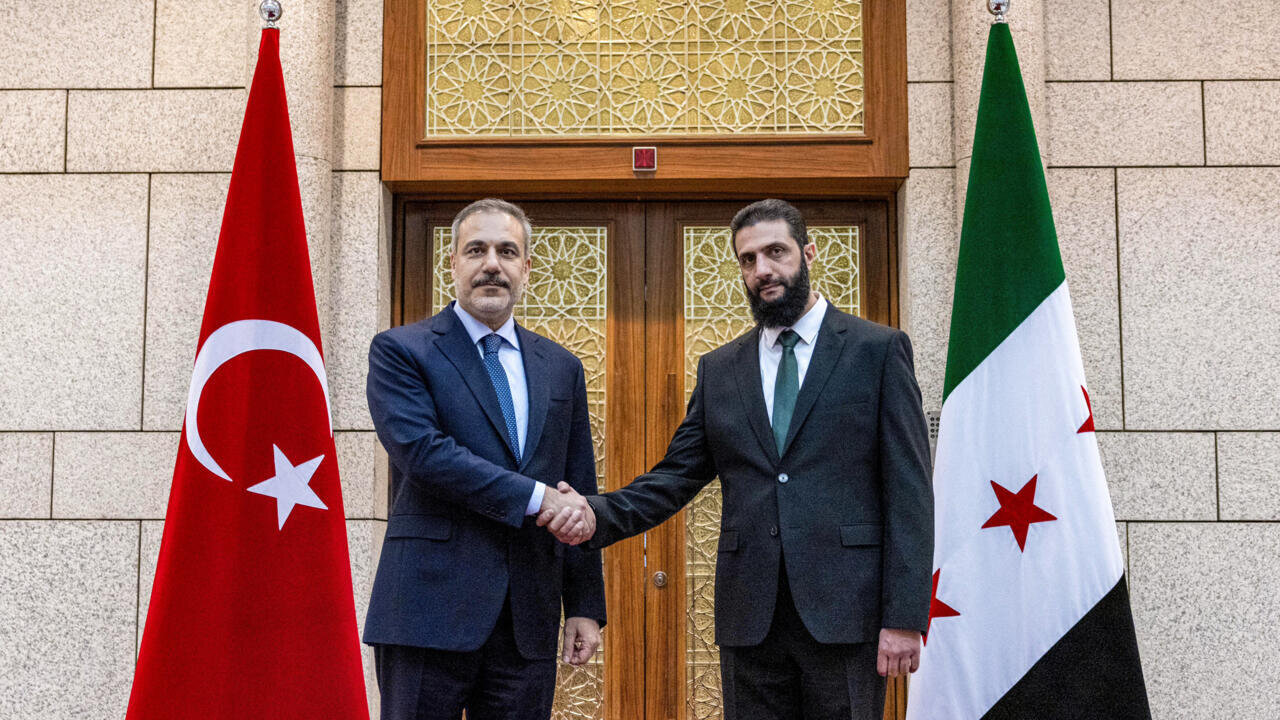Recent Syria developments and its implications for the Belt and Road Initiative
TEHRAN – On December 8, the Hayat Tahrir al-Sham (HTS) and its allied armed opposition groups took control of Syria, including Damascus, the country’s capital. Various political delegations have met with Ahmed Hussein al-Sharaa, also known by his nom de guerre Abu Mohammad al-Julani, the current de facto leader of the country, giving him some


TEHRAN – On December 8, the Hayat Tahrir al-Sham (HTS) and its allied armed opposition groups took control of Syria, including Damascus, the country’s capital. Various political delegations have met with Ahmed Hussein al-Sharaa, also known by his nom de guerre Abu Mohammad al-Julani, the current de facto leader of the country, giving him some sort of political legitimacy.
So far, Great Britain, France, Germany, Turkey and Qatar, which are considered US allies, as well as the US itself, have sent their delegations to Syria. In addition, according to published news, during the meeting of the delegations, there was talk of removing HTS from the list of terrorist groups, removing the names of its leaders, especially al-Julani, from the list of wanted persons, suspending the sanctions on Syria that were imposed on the country in the past, particularly the Caesar sanctions. At first glance, it may seem that the rise of a new regime has no significant implications for China’s Belt and Road Initiative (BRI), especially since Syria and China have not had significant economic relations. But a closer look at the issue reveals why the recent developments in Syria could be more important for China than it might seem.
Before entering into the main discussion, it is worth mentioning that the history of recent events in Syria dates back at least to early 2011, with the start of relatively widespread protests against the then government and, ultimately, the start of the civil war in the country. In parallel with these developments, Syria gradually became a battlefield for global and regional foreign actors, especially Turkey and the US. As a result of this confrontation, various armed opposition groups, such as the Islamic State of Iraq and the Levant (ISIL), the Free Syrian Army, the Syrian Democratic Forces, the Nusra Front (an offshoot of ISIL and Al-Qaida that later rebranded itself into HTS), and new branches of al-Qaeda, were also either created or reared their ugly head. If they had already been created, they increased their activities. It should be noted that the Syrian civil war was part of a conflict between local, regional, and global actors that began with the first Arab Spring in 2011, turning some Arab countries in West Asia and North Africa, such as Libya, Yemen, and of course Syria, into a battlefield for such actors. Although the People’s Republic of China did not directly enter into foreign-instigated Syrian civil war, it took a de facto stance on it by taking actions such as vetoing United Nations Security Council resolutions against the Syrian government and providing it with other supports. Although HTS cannot be considered an anti-China regime at the moment, considering the list of its allies and supporters, it is probably not as pro-China as the Bashar al-Assad government.
Syria joined the BRI in 2022 by signing a memorandum of understanding although it could not benefit from the initiative for various reasons, including the sanctions imposed on it and the country under Bashar al-Assad. But the important point is that the fall of the Assad government is the latest in a chain of possibly related events that have happened in other countries in recent years. For example, relatively pro-China governments in Sri Lanka, Pakistan, and Bangladesh, countries that ironically play an important role in the BRI, have also fallen. Also, the withdrawal of the US from Afghanistan, the fall of the Islamic Republic of Afghanistan and the re-establishment of the Islamic Emirate of Afghanistan under the Taliban are other important events that can be taken into account from the same point of view. Even the Russo-Ukrainian war and the war between the Republic of Azerbaijan and Armenia can be considered from the same viewpoint. If the geopolitical developments continue in this way and similar events happen in other countries and regions, the BRI will face serious challenges.
In fact, these geopolitical developments, which are greatly under the influence of economic issues, are the result of strategic competition between global players, especially the US, China, and Russia, and regional players such as India, Saudi Arabia, the UAE, Turkey, and Iran to some extent. Each of these actors, alone or with the cooperation of some other actors, tries to form their desired geo-economic vision with a series of positive and negative actions in their playing field. The efforts will continue until a new order is formed.
In this situation, corridors have become a vital tool to realize the intended geoeconomic visions and corridor competitions have begun. From this viewpoint, the unveiling of the India-Middle East-Europe Union Economic Corridor (IMEC) in 2022 is a positive action that has been done largely in response to the BRI. It is worth mentioning that IMAC is part of the Global Partnership for Infrastructure and Investment (PGII) defined in response to the BRI by the Group of Seven and its allies. But, with the escalation of tensions, corridor competitions have actually turned into corridor wars. In this framework, weakening or overthrowing governments through sanctions, civil disorders, color revolutions, military coups and armed opposition, as well as inciting and engaging in ethnic and religious strife, conflicts, or war is used as strategies in corridor tensions by some actors, especially the US and its allies.
The current situation in Syria is mainly the result of the negative actions of foreign actors involved in the civil war in the country, including Turkey which hid itself behind relatively positive actions, such as the Syrian peace process, especially the Astana process. In addition to Syria, Turkey has been involved in various tensions in different regions, such as the Russo-Ukrainian war and the tensions between Azerbaijan and Armenia. It has been trying to improve its geoeconomic and geopolitical position. Turkey is one of the main supporters of the so-called Zangezur Corridor, which provides unimpeded access from the Republic of Azerbaijan to the Autonomous Republic of Nakhchivan.
The corridor connects Turkey to the rest of the Turkic world in Central Asia and, according to the Turkish authorities, unites the entire Turkic world. What makes the establishment of the corridor worrisome is Turkey’s history of negative actions to achieve its goals. For example, the Turkestan Islamic Party, a militant Islamist organization that seeks to establish an Islamic state in China’s Xinjiang and Central Asia, has been an ally of the Turkish-backed parties in the Syrian civil war and the Russo-Ukrainian war. If the intervention in Syria leads to the expected results for Turkey, this country will probably implement the Zangezur Corridor and its pan-Turkic agenda in the Caucasus and Central Asia with more confidence. Possible future tensions in Xinjiang and Central Asia through disruptive moves can pose serious challenges to the establishment and development of three of the six corridors of the BRI, namely the China-Pakistan Economic Corridor, the New Eurasian Land Bridge, and the China-Central Asia-West Asia Corridor.
According to the above explanations, it should be clear that the recent developments in Syria have important implications for the BRI. Since its launch, the BRI has seen significant milestones. For example, the Covid-19 pandemic caused a revision of some aspects of the initiative and the addition of the Health Silk Road to it. The dramatic developments in the field of digital economy in recent years have also made the Digital Silk Road an important part of the initiative. Now it seems that geopolitical challenges, especially those related to Syria, would cause a revision of some aspects of the BRI. In general, cooperation with countries in the framework of the BRI should be in a way that strengthens the positive actions and weakens the negative actions. In particular, helping the development of countries that can neutralize Turkey’s negative actions against the BRI in the Middle East, the Caucasus, and Central Asia or dissuade it from resorting to negative actions against the BRI can be China’s priority. Iran is one of the best examples of such countries.
